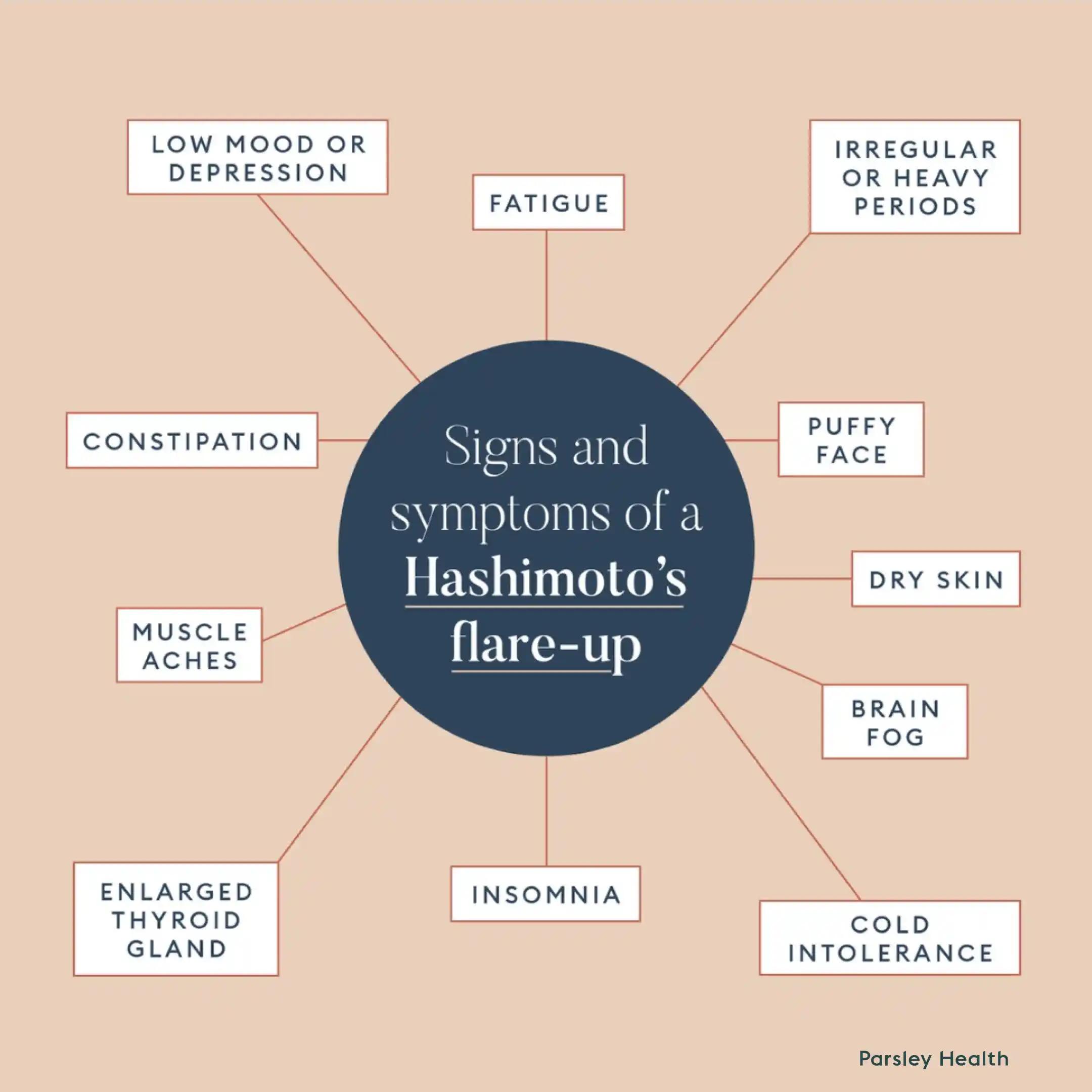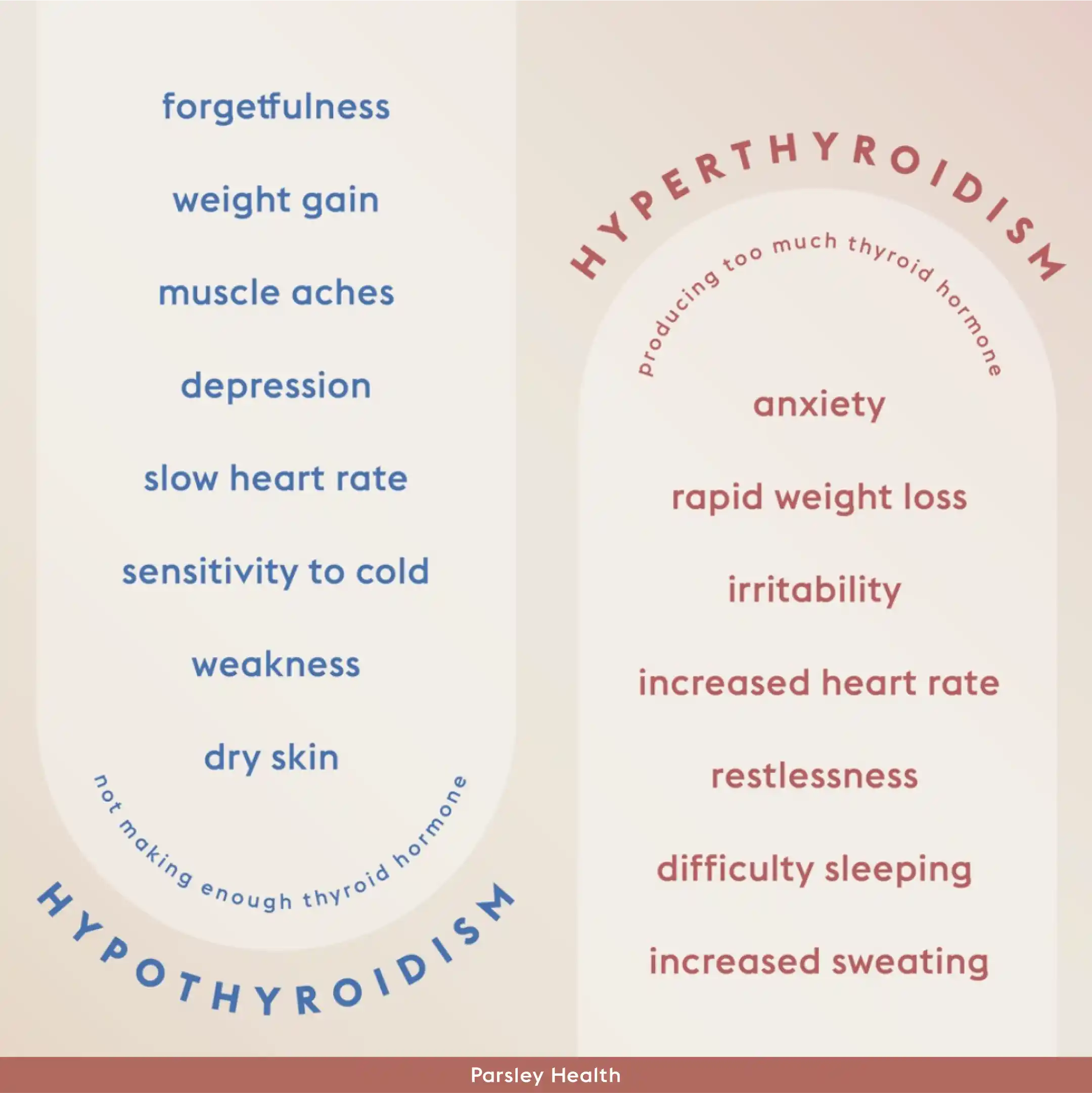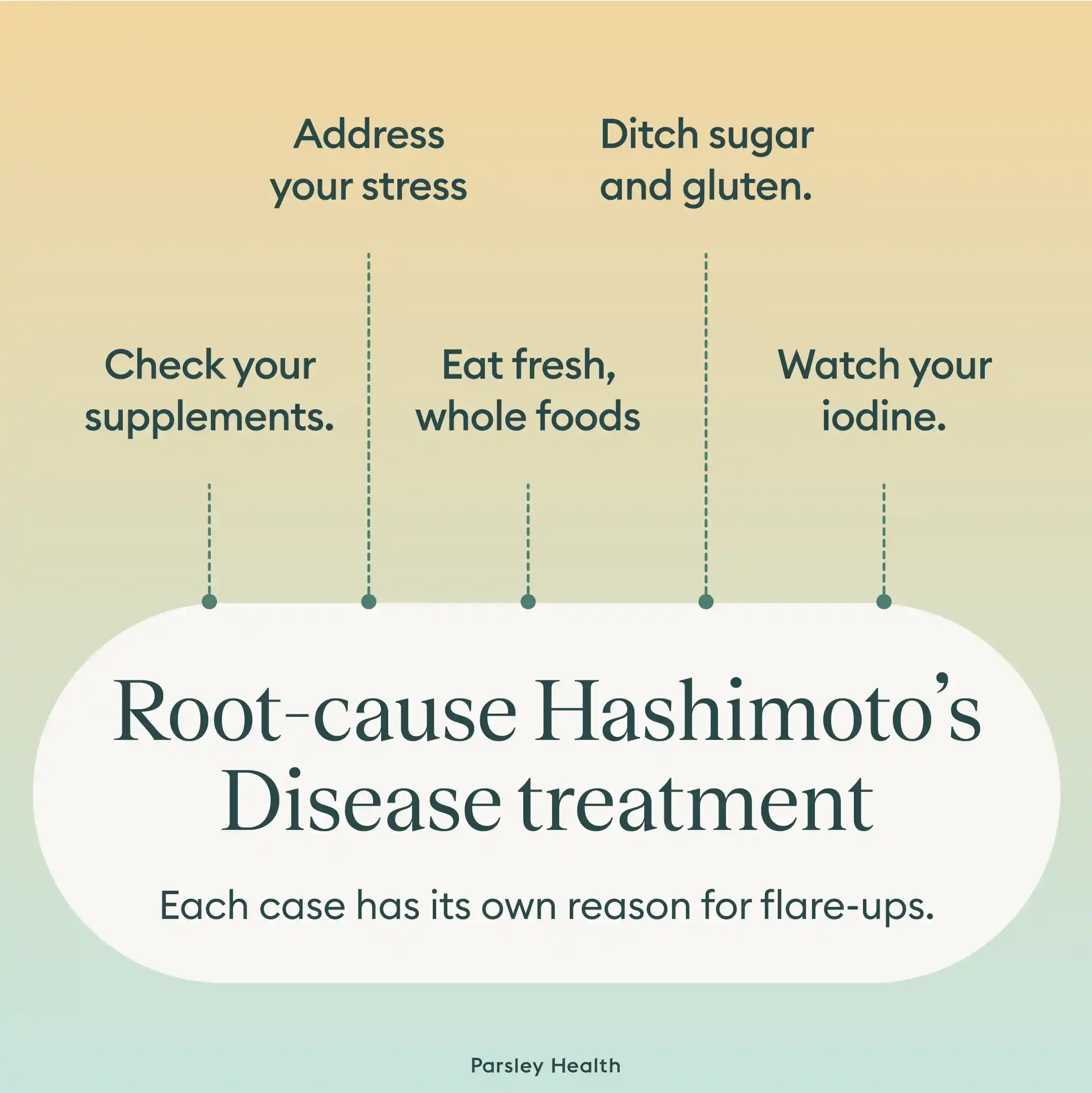Additional reporting done by Angela Myers.
Hashimoto’s usually causes a low-functioning thyroid, creating a cascade of symptoms that can be triggered at any time. Sometimes, it can cause a high functioning thyroid. Adding to the fire: It’s an autoimmune condition, meaning each flare damages the ever-important gland. But what does a Hashimoto's attack feel like, and what should you do if you experience one?
Hashimoto’s disease is an autoimmune condition that causes your immune system to make antibodies that attack and damage your thyroid (the butterfly-shaped gland at the base of your neck). About 5% of people have Hashimoto’s disease, and it affects eight times more women than men, most often those between ages 40 and 60, according to the National Institute of Diabetes and Digestive and Kidney Diseases. Hashimoto's disease symptoms vary from person to person, though there are some common signs.
What is a Hashimoto’s flare-up?
Before we dive into Hashimoto's attack, let's take a step back: What are autoimmune flare-ups in general? A flare-up occurs when symptoms suddenly and swiftly return, and while they can look like the symptoms you normally experience, flare-ups tend to be more severe.
Just as you’ve been coasting along and feeling pretty great, you’re hit again with familiar symptoms. Maybe you haven’t pooped in days. You’re suddenly cold and wearing your “summer sweaters.” You’re mopey as heck, and no number of naps can relieve the unrelenting fatigue.
Flares happen because of additional stress on your body, which taxes an immune system that is already hyper-vigilant, sending it into a tailspin. “When flares happen, there is a greater antibody response going on at that time, which leads to more destruction of the thyroid gland,” says Neeti Sharma, MD, a board-certified internal medicine physician at Parsley Health.
So, what does a Hashimoto's attack feel like? To start, these flare-ups lead to low levels of thyroid hormones. These hormones are essential for regulating your metabolism, body temp, heart rate, energy, menstrual cycle, mood, and hair and nail growth. When these hormones are out of whack, your body is, too.

That means during a Hashimoto's flare-up you may feel fatigue, gain weight, be perpetually cold, experience constipation, have fertility issues, brain fog, or have aching joints and muscles. However, not all symptoms are present for everyone or in all flare-ups.









